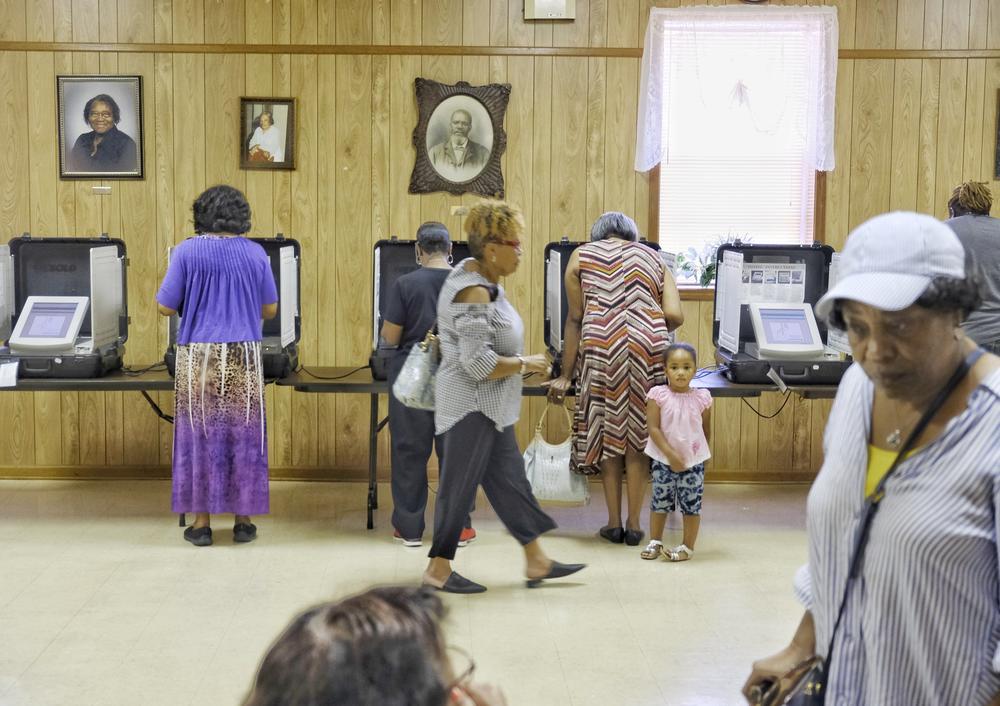Section Branding
Header Content
Judge: Georgia Paper Ballots Case A 'Catch-22'
Primary Content
A federal judge could decide this week if the state must switch to paper ballots for this November’s election.
Judge Amy Totenberg told a packed courtroom Wednesday the request to change the state’s election infrastructure was a “catch-22.” One the one hand, Totenberg said protecting voting rights from threats of cyberattack or hacking was important because it deals with the integrity and credibility of the voting system.
On the other hand, moving elections systems now, just weeks before the Nov. 6 election, could also impact voter rights by leading to longer lines at the polls, fewer early voting locations and provide a new set of challenges for poll workers in Georgia’s 159 counties.
Totenberg said a decision could come Friday or Monday on a request filed by a group of concerned Georgia voters and election security advocates. They have asked the court to mandate Georgia ditch about 27,000 direct-recording electronic voting machines and instead use paper ballots tallied by an optical scanner.
The plaintiffs pointed to a recent report from the National Academy of Sciences that says all states in the U.S. should move to “human-readable paper ballots” by the 2020 presidential election, and cite assessments from U.S. military intelligence that the Russian government sponsored attacks on state elections systems.
Witnesses included Alex Halderman, a computer science professor from the University of Michigan, who demonstrated how a machine similar to those Georgia uses could see election results altered by malware-infected memory cards.
Halderman said that malicious hackers wouldn’t necessarily need physical access to voting machines or infrastructure for potential problems to spread, which is why he suggested hand-marked paper ballots as the answer.
But elections officials say that means 900 optical scanners would have to read more than 3 million ballots, a task that could take several days in some of Georgia’s largest counties.
Chris Harvey, Georgia’s elections director, said the manufacturer recommends each scanner only handle counting about 2,000 or so ballots during an election, and that these scanners are designed to be used at a smaller precinct level. And if the state were required to buy more scanners to handle more ballots, he said it would not be able to get enough for the volume of votes cast in November’s election.
The state also argued that there would not be enough time to design, print and deliver ballots across the state, especially since early voting begins Oct. 15. Additionally, state officials say they would have to create new training for poll workers from scratch and a new system would result in more confusion.
Secretary of state and Republican candidate for governor Brian Kemp has formed the Secure, Accessible & Fair Elections (SAFE) Commission to explore alternatives for Georgia’s elections infrastructure ahead of the 2020 presidential election, all of which include a paper backup. Kemp is named as a defendant in the hearing in his role as secretary of state, but was not a part of Wednesday’s hearing.
During the hearing, his opponent, Democrat Stacey Abrams, sent out an email informing Georgians how to register for an absentee paper ballot by mail.


